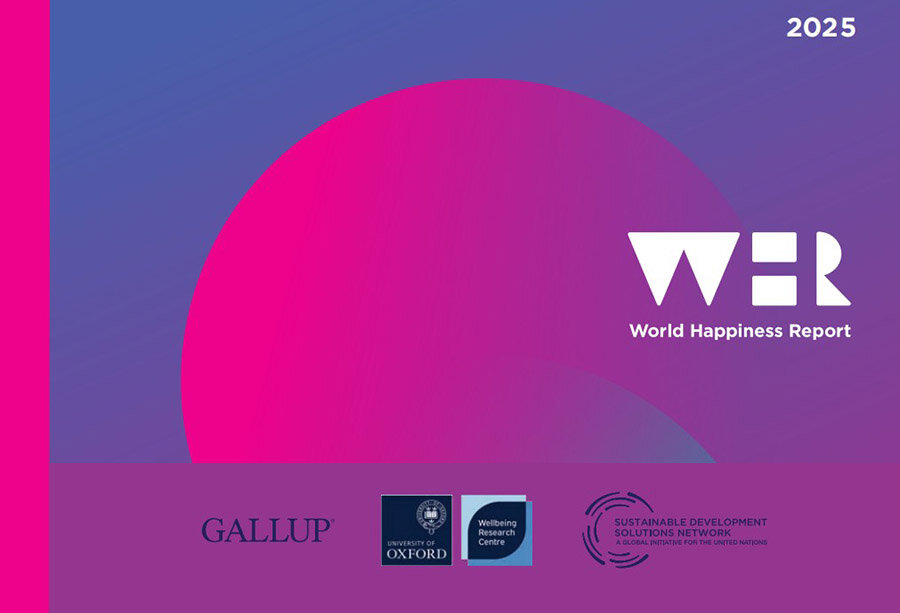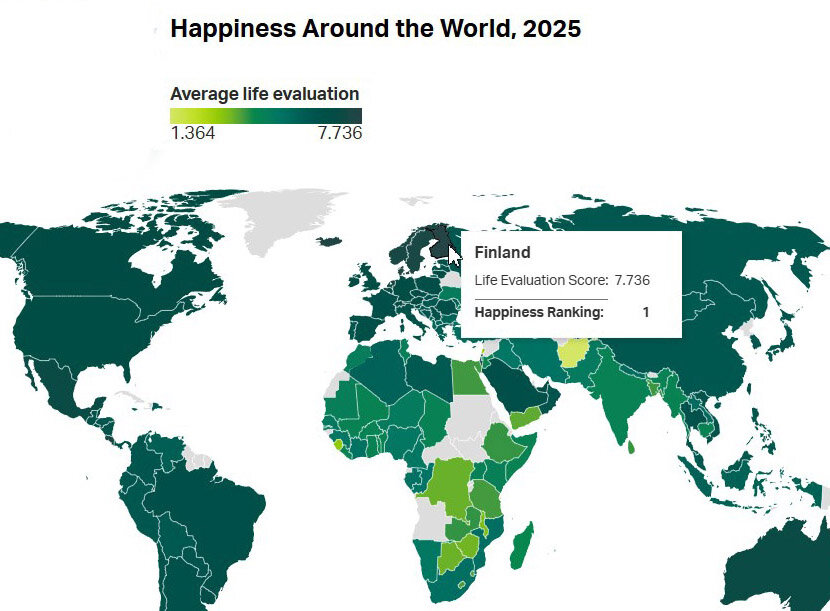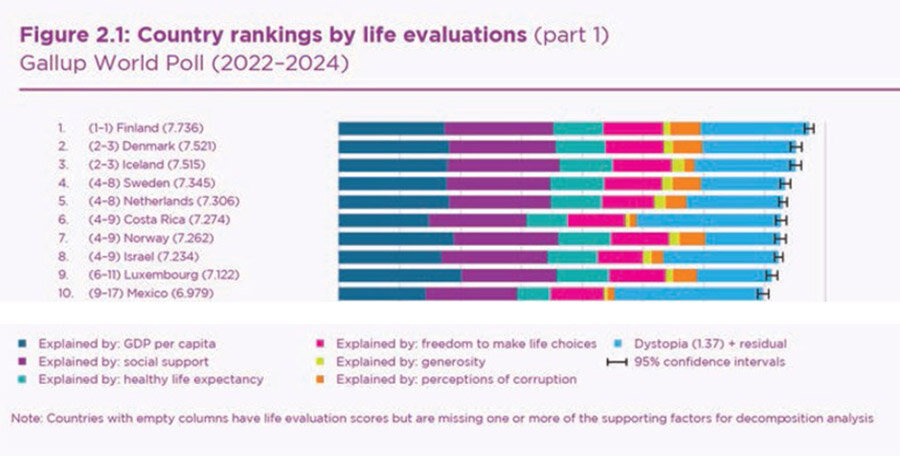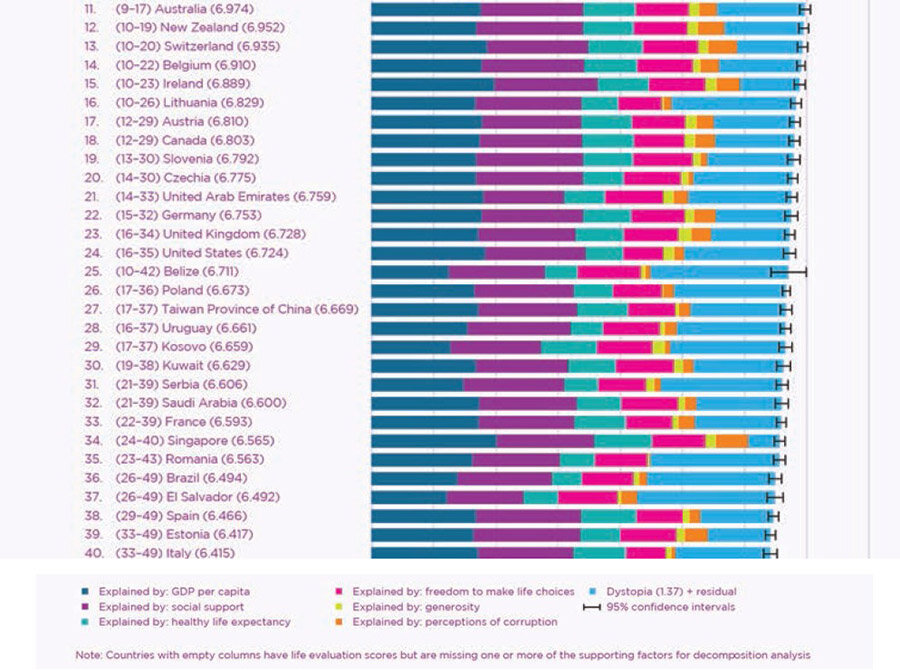read also
Analytics / Research / Finland / Denmark / Iceland / Sweden / Netherlands / Norway / Israel / Ratings 21.03.2025
World Happiness 2025: Which Countries Have the Most Satisfied People?

The level of happiness across different countries and the key factors influencing life satisfaction have been analyzed in a new Gallup study, created in collaboration with the Oxford Wellbeing Research Centre and the United Nations. The World Happiness Report 2025 emphasizes the critical role of wellbeing, social bonds, compassion, and shared experiences.
For the eighth year in a row, Finland has been named the happiest country in the world, followed by Denmark and Iceland.

During this large-scale survey, researchers evaluated factors such as GDP, social support, quality and availability of healthcare, freedom in making life decisions, generosity and willingness to help others, and perceived corruption.
Top 10 Happiest Countries
1. Finland
Finland continues to lead the global happiness ranking, being the world’s happiest country for eight consecutive years. The country owes its top position to robust social support, high levels of trust, and excellent healthcare. A healthy work-life balance and a strong connection to nature contribute to improved mental well-being. Inclusive education and healthcare also play a vital role.
2. Denmark
Denmark maintains its position thanks to an effective social protection system, high quality of life, and strong community solidarity. Danes are known for their optimism and balanced lifestyle. Support for people with disabilities and flexible labor laws also contribute to national happiness.
3. Iceland
Another Nordic country in the top three, Iceland excels in healthcare, social support, and life quality. Icelanders place strong emphasis on equality, justice, and environmental consciousness — which all support mental wellbeing.
4. Sweden
Sweden promotes equal opportunities and lifelong support. Sustainable practices and human rights protection are core to Swedish society. High social mobility further contributes to a strong sense of life satisfaction.
5. Netherlands
The Netherlands offers a solid infrastructure, high quality of life, and strong social mobility. Dutch culture values openness and tolerance, which fosters a sense of community and personal freedom.
6. Costa Rica
Although not a wealthy country, Costa Rica ranks high thanks to a clean environment, strong social safety nets, and decent healthcare. It scores well in sustainability, public wellbeing, and life satisfaction.
7. Norway
Norway is consistently ranked among the happiest countries. Its strong education and healthcare systems, as well as protection for families and the elderly, ensure high levels of wellbeing.
8. Israel
Israel ranks 8th due to its advanced healthcare system, quality of life, and thriving tech and science sectors. Patriotism, civic engagement, and community ties support happiness across the population.
9. Luxembourg
With its high standard of living, excellent public transportation, healthcare, and education, Luxembourg also promotes social equity and youth support.
10. Mexico
Despite safety and economic challenges, Mexico surprises many by entering the top 10. Strong family ties, social bonds, and optimism help boost national happiness.

Declining and Changing Rankings
Costa Rica and Mexico have entered the top 10 for the first time. Meanwhile, the United States has fallen to 24th place from 11th in 2012, with experts pointing to political polarization, growing inequality, and rising rates of depression and anxiety.
Countries ranked from 11th to 40th include:
Australia, New Zealand, Switzerland, Belgium, Ireland, Canada, Slovenia, Czech Republic, UAE, Germany, UK, Poland, Taiwan, Kuwait, Spain, Estonia, Italy.

Least Happy Countries (143–147)
Political instability, poverty, conflict, and limited access to healthcare are the main factors impacting the least happy countries:
143. Zimbabwe – hit by hyperinflation, unemployment, and political uncertainty.
144. Malawi – low income, limited education and healthcare, high child mortality.
145. Lebanon – facing an economic meltdown, inflation, and severe public distrust.
146. Sierra Leone – poverty, poor infrastructure, corruption, and weak health systems.
147. Afghanistan – the unhappiest country due to war, rights violations, and extreme humanitarian crises.
Key Insights: Happiness Isn’t Just About Wealth
The report notes that health and financial well-being are not the only happiness drivers. Feeling supported, sharing meals, and having meaningful social interactions are equally important.
For example, people who eat alone consistently score the lowest in life satisfaction globally (4.9 out of 10), compared to those who regularly dine with others (5.5–5.6). In the U.S., the number of people eating alone rose 53% over the past 20 years.
In 2023, 19% of young people globally reported they couldn't count on others for support — up 39% from 2006.
Policy Recommendations
The report encourages governments to:
- Promote kindness, volunteering, and charity
- Strengthen mental health support
- Improve freedom of choice and individual agency
- Increase transparency and anti-corruption efforts
- Create inclusive policies for youth and older adults
Countries that invest in mental health, community-building, freedom, and good governance tend to rank higher in happiness.








